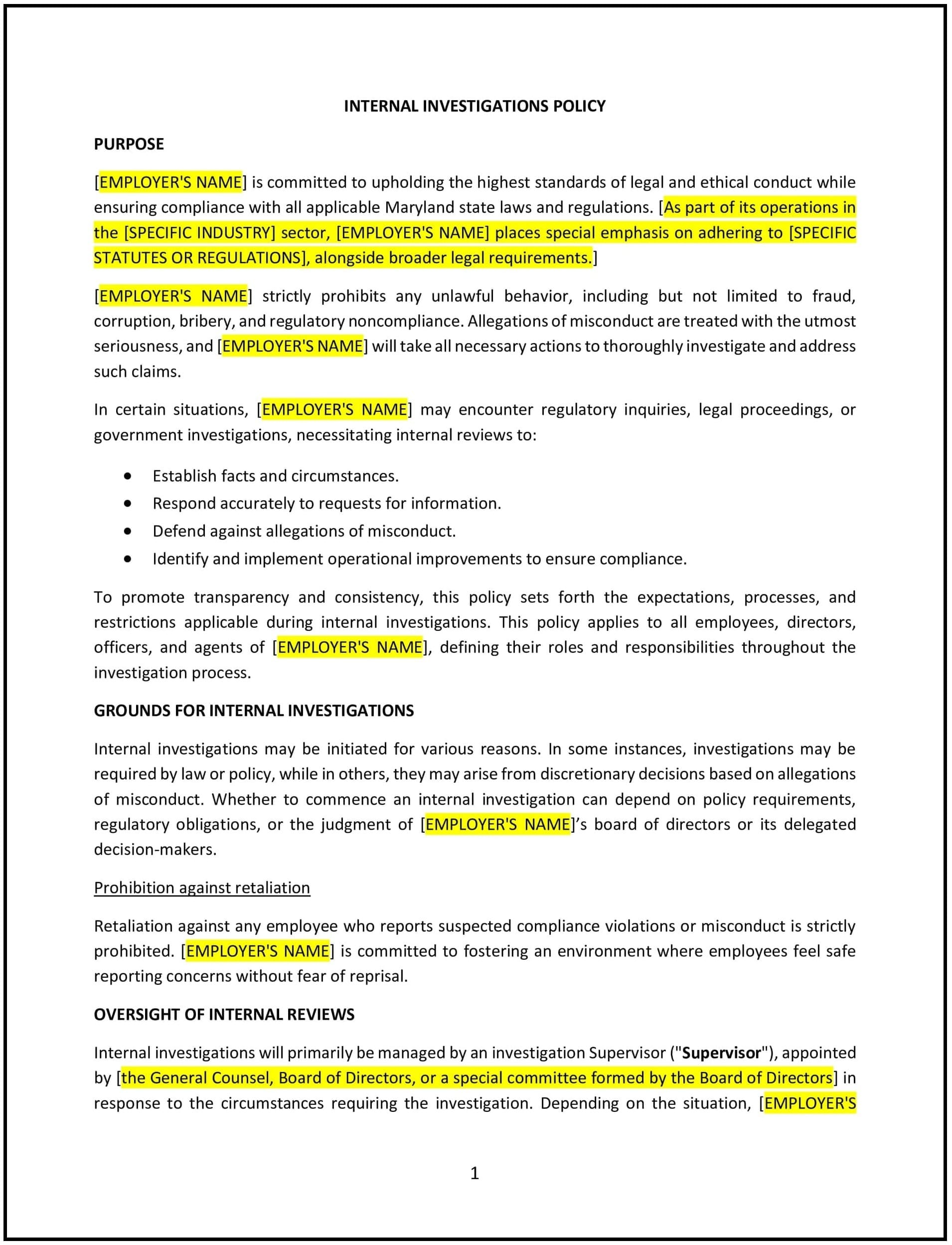Internal investigations policy (Maryland): Free template
Got contracts to review? While you're here for policies, let Cobrief make contract review effortless—start your free review now.

Customize this template for free
Internal investigations policy (Maryland)
This internal investigations policy is designed to help Maryland businesses establish a clear framework for handling allegations of misconduct, policy violations, or other workplace issues. It outlines procedures to ensure fairness, confidentiality, and supports compliance with applicable laws.
By adopting this policy, Maryland businesses can effectively address workplace concerns, promote accountability, and foster a culture of trust.
How to use this internal investigations policy (Maryland)
- Define the scope: Specify the types of issues covered, such as harassment, discrimination, fraud, or other violations of company policies or laws.
- Establish reporting procedures: Outline how employees can report concerns, including anonymous reporting options if available.
- Assign investigative responsibilities: Designate individuals or teams, such as HR or external consultants, to manage investigations.
- Detail investigation steps: Include processes for gathering evidence, interviewing parties involved, and maintaining objectivity.
- Emphasize confidentiality: Protect the privacy of all parties involved, ensuring information is shared on a need-to-know basis.
- Address potential outcomes: Specify the potential resolutions, such as disciplinary actions, training, or policy updates, based on findings.
- Reflect Maryland-specific considerations: Include requirements under Maryland employment laws, such as documentation standards or reporting obligations.
Benefits of using this internal investigations policy (Maryland)
Implementing this policy provides Maryland businesses with several advantages:
- Promotes fairness: Ensures that investigations are handled impartially and consistently.
- Protects confidentiality: Safeguards sensitive information and minimizes workplace disruptions.
- Reduces legal risks: Aligns with Maryland laws and helps prevent potential legal challenges.
- Encourages accountability: Reinforces a commitment to addressing workplace issues promptly and thoroughly.
- Enhances workplace trust: Demonstrates that employee concerns are taken seriously and addressed appropriately.
Tips for using this internal investigations policy (Maryland)
- Train managers: Ensure supervisors understand how to recognize and escalate potential issues for investigation.
- Use neutral investigators: Engage unbiased individuals or third parties to conduct investigations when appropriate.
- Communicate findings appropriately: Share investigation outcomes only with relevant parties to maintain confidentiality.
- Document thoroughly: Maintain detailed records of all investigation steps and findings for accountability.
- Stay updated: Reflect changes in Maryland laws or workplace practices in the policy.